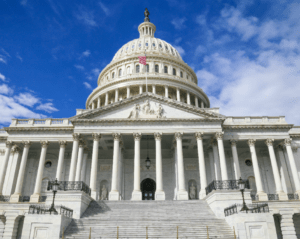
There has been talk of a possible second wave of stimulus checks or other form of financial relief for Americans during the Coronavirus pandemic and related financial crisis for some time now. Many people have already received their $1,200 or $2,400 checks from the first stimulus (if you haven’t and want to check your eligibility status, visit the official IRS website here: https://www.irs.gov/coronavirus/get-my-payment).
While this was helpful for many, there are numerous congressmen and women arguing that more needs to be done. According to a recent poll by Refinitiv, many economists predict an unemployment rate of up to 20% with total jobs lost approaching 28 million. This number is significant, as it is three times that of the jobs lost during the 2008 financial crisis. During the Great Depression, unemployment reached 24.9%. The Department of Labor will release May’s unemployment numbers tomorrow, June 5th, which will help shed some light on which way the job market is trending.
Either way, many Americans are still out of work, or have seen their hours reduced. It appears both sides of Congress and the White House are seeking to provide aid. The House passed the Heroes Act on May 15th with a whopping $3 trillion economic package, but this was immediately met with a threat of veto by the White House and Senate Majority Leader Mitch McConnell declaring the bill dead on arrival.
While this was an initial blow against more aid, the conversation is not over. According to the Wall Street Journal, there is a possible package being worked on in the White House, and McConnell has suggested that the Senate will weigh in on a possible second round of stimulus over the coming weeks. According to McConnell, if something is passed, it will be the last and final wave. Nothing is certain, but it seems the Heroes Act passed by the House could have been a catalyst to continued negotiations.
With that said, what does each side want, and is there common ground?
The $3 trillion Heroes Act that was passed by the House covers a number of issues, but major topics include $1 trillion in funds to state and local governments, another $75 billion to state and local government earmarked to support testing and contact tracing of Covid-19, $200 billion to essential workers for hazard pay, $175 billion to homeowners and renters in need of support, $100 billion for colleges and k-12 schools as well as $10,000 in debt relief to private and federal student loan borrowers, and $100 billion to provide relief to hospitals and health care providers.
Back to the Wall Street Journal report, President Trump and his advisors seem to be interested in a package that would provide incentives for individuals to go back to work (this is important, as those making under approximately $60,000 per year right now are actually in a position to be making more on unemployment than they were when working full time due to the recently passed CARES Act). This could include continuing federal unemployment benefits during the second half of the year but reducing them from the $600 outlined in the CARES act to $300 or so. The White House proposal also seeks to help restaurants and small business by providing tax breaks to those who go on a domestic vacation this year. The White House has also indicated that they are not necessarily against a second stimulus check of some unspecified amount. The Wall Street Journal outlines that this bill could reach as high as $1 trillion according to Republicans.
The Senate has its own ideas, and according to McConnell might seek to pass a relief package that is smaller than the previously passed CARES Act which amounted to $2 trillion. It seems the Senate is a possible middle ground between the White House’s potential $1 trillion bill and the House’s $3 trillion Heroes Act. That said, the Senate seems to be the largest hurdle for a second stimulus check. Many Republicans in the Senate are hesitant on the idea and wish to focus relief in what they consider more efficient ways. Senator James Lankford (R-Okla.) has commented that he does not believe setting up a situation where we are doing a check month after month would be wise. Senator Mitt Romney (R-Utah) has said that passing this form of stimulus again would be unlikely. Overall, Republicans seem more focused on helping with unemployment benefits. Senate Democrats, too, have their reservations on another stimulus check. Many say the checks are not specific enough to who they are sent to, and if sent out in a similar fashion as the CARES Act again, could be wasteful. Senator Christopher Coons (D-DE) has noted that the checks are, “not focused in a way that is designed to help create or help sustain jobs, to deal with rental housing or education. My top priority is a robust round of assistance to state and local governments.”
It goes without saying that whatever bill is passed will need to go through the Senate. Based on current sentiment on another round of stimulus checks by both Senate Republicans and Democrats, a second wave seems unlikely. More aid in a different form, however, does not.
This conversation is fluid, and we will continue to stay up to date on legislature related to Covid-19 that may affect your financial health. Continue to follow Campbell Financial Services for more.
Contact Us
Book an Appointment
- 1-508-747-5249
Sign up for our newsletter!
(We do not share your data with anybody, and only use it for its intended purpose)

Leave A Comment